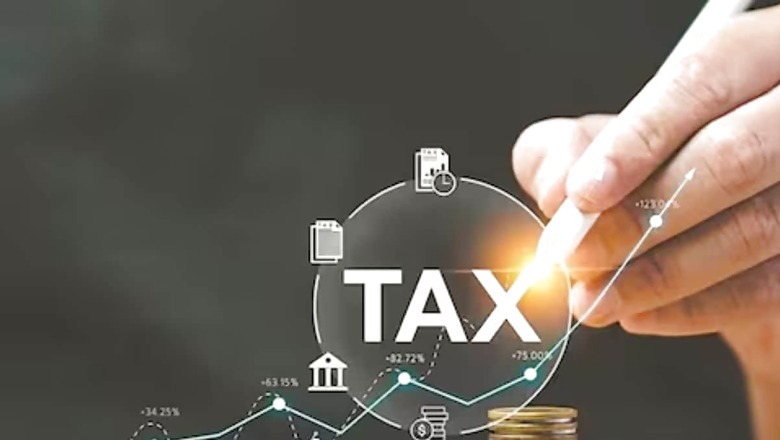
views
The government has recently notified October 1 as the starting date for the direct tax dispute resolution scheme Vivad Se Vishwas 2.0. The scheme is a step towards litigation management.
The scheme offers taxpayers an opportunity to settle disputes by paying the principal tax amount while receiving waivers on interest and penalties.
The Income Tax Department on Saturday said the scheme provides for lesser settlement amounts for taxpayers who file a declaration on or before December 31, 2024, in comparison to those who file thereafter.
The Rules and Forms for enabling the Scheme have also been notified.
The DTVSV Scheme provides for lesser settlement amounts for a ‘new appellant’ in comparison to an ‘old appellant’ The DTVSV Scheme also provides for lesser settlement amounts for taxpayers who file a declaration on or before December 31, 2024, in comparison to those who file thereafter.
Four separate Forms have been notified for the DTVSV Scheme. These are as under:
Form-1: Form for filing declaration and Undertaking by the declarant
Form-2: Form for Certificate to be issued by Designated Authority
Form-3: Form for Intimation of payment by the declarant
Form-4: Order for Full and Final Settlement of tax arrears by Designated Authority
The DTVSV Scheme also provides that Form-1 shall be filed separately for each dispute provided that where the appellant and the income-tax authority, both have filed an appeal in respect of the same order, a single Form-1 shall be filed in such a case.
The intimation of payment is to be made in Form-3 and is to be furnished to the Designated Authority along with proof of withdrawal of appeal, objection, application, writ petition, special leave petition, or claim.
Forms 1 and 3 shall be furnished electronically by the declarant. These Forms will be made available on the e-filing portal of Income Tax Department i.e. www.incometax.gov.in.
Around 2.7 crore direct tax demands totalling about Rs 35 lakh crore are being disputed at various legal foras.
Deloitte India Partner Karishma R. Phatarphekar said with tax payment rates under the Vivad Se Vishwas 2.0 scheme set to increase by 10 per cent starting January 1, 2025, it is crucial for companies to evaluate their pending income tax litigations from both a cost-benefit standpoint and a broader non-tax perspective.
Who is Eligible?
The scheme can be availed by taxpayers who have disputes/appeals, including writs and special leave petitions(appeals) whether filed by the taxpayer or the tax authorities are pending as of July 22, 2024 before the Supreme Court, high courts, Income Tax Appellate Tribunal, Commissioner/Joint Commissioner (Appeals).
It would also include cases pending before the Dispute Resolution Panel (DRP) and revision petitions pending before the Commissioner of Income Tax.
Taxpayers must file a declaration of disputed tax, and the designated authority will determine the payable amount within 15 days.
Upon timely payment, taxpayers will be granted immunity from further prosecution, penalties, or interest related to the settled tax disputes.
Participation in the scheme after January 1, 2025, will incur a 10% additional charge on the payable amount.
The scheme aims to settle disputes aggregating approximately Rs 35 lakh crore, riding on the success of the previous 2020 VSV scheme, which saw declarations totaling Rs 98,328 crore by its closure in March 2021.
What’s Excluded?
Certain categories, such as disputes involving undisclosed foreign income or assets, cases based on information from foreign jurisdictions, and disputes where taxpayers are convicted under laws like the Money Laundering Act or the Benami Property Transactions Act, are excluded from the scheme.
The first ‘Vivad se Vishwas’ scheme for cases under direct taxes was brought out by the government in 2020. About 1 lakh taxpayers availed the scheme and the government earned taxes of about Rs 75,000 crore.

















Comments
0 comment